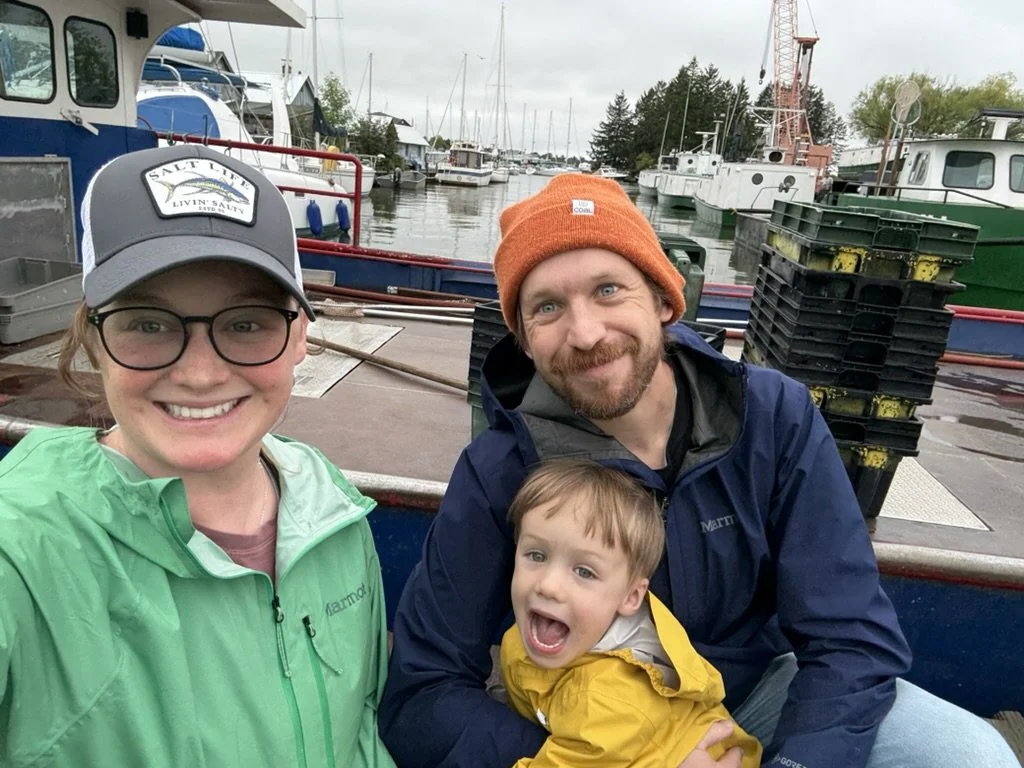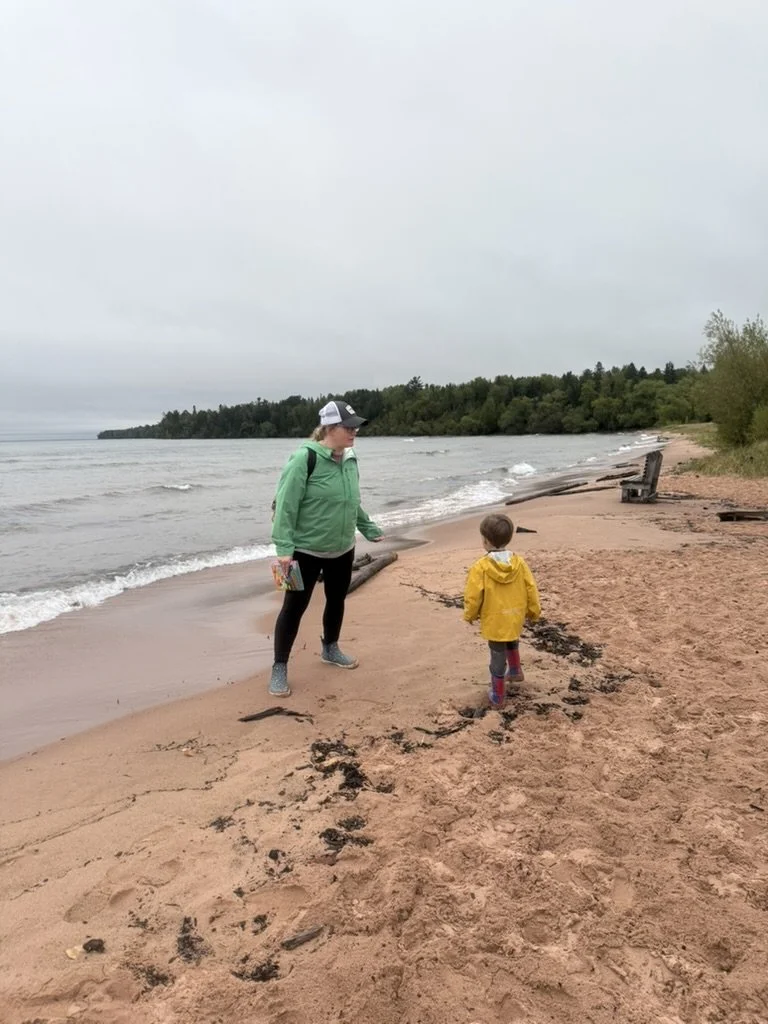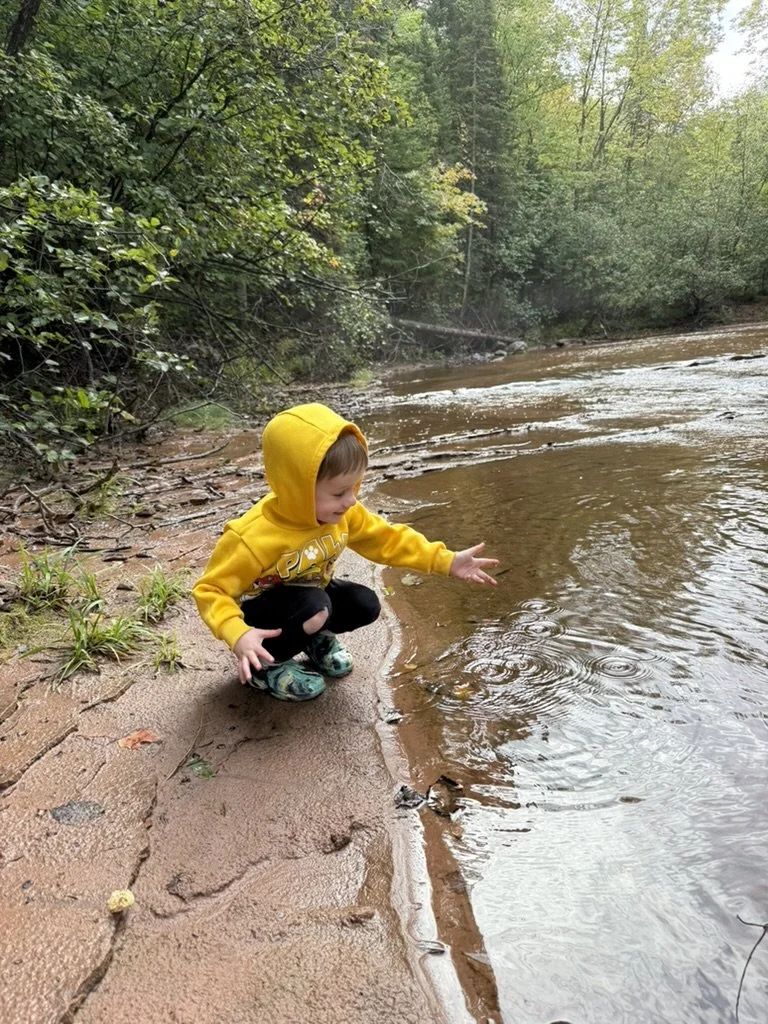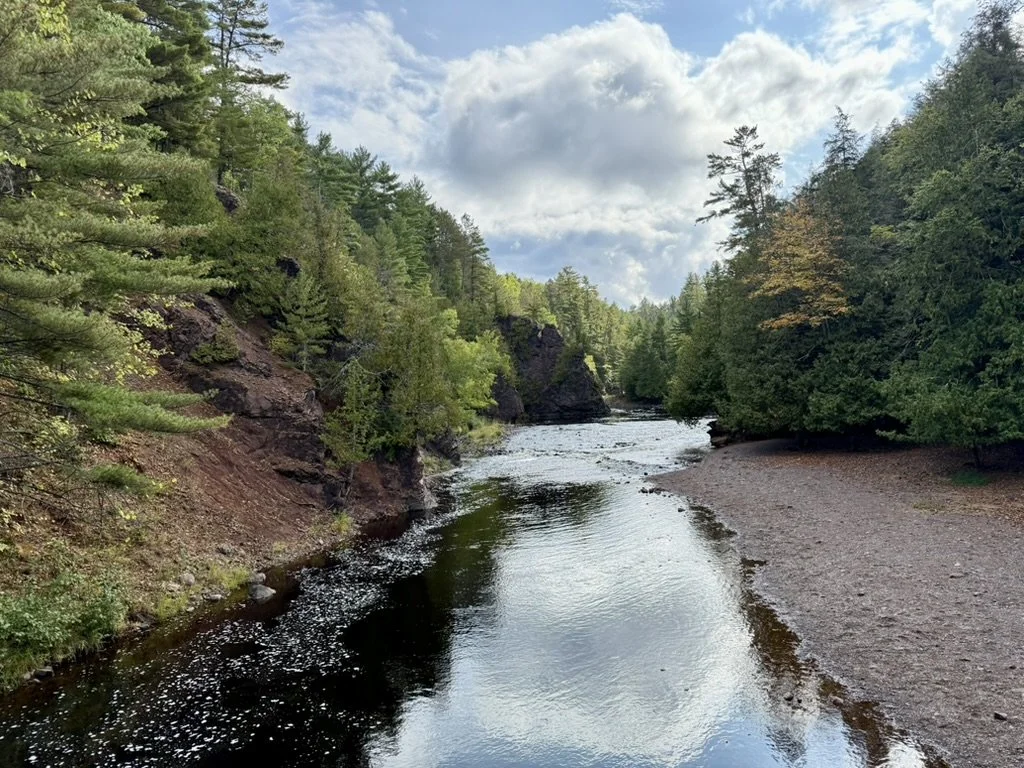
OM STORIES
Redefining Ourselves Outside—Together
Megan’s world was turned upside down in 2024, when she was diagnosed with a rare and chronic neurological disorder called Cerebral Amyloid Angiopathy-Related Inflammation.
Watch this video from Megan Wright in Indiana—one of our amazing working board members—to hear about her journey and why Outdoor Mindset’s work is unique….and matters.
Megan’s world was turned upside down in 2024, when she was diagnosed with a rare and chronic neurological disorder called Cerebral Amyloid Angiopathy-Related Inflammation. She learned about Outdoor Mindset while seeking a means to balance her adventurous drive with her new medical reality. Megan knows, in a very intimate way, how significant both community and nature can be when walking the trail to renewal. Thus, she strives to share nature’s transformative power through communities like Outdoor Mindset, to all who seek healing and well-being.
Immersive Healing in the North Woods—A Family Trip to Lake Superior and the Apostle Islands
A brain tumor survivor reconnects with nature and healing on a family trip to Lake Superior and the Apostle Islands. The journey, supported by Outdoor Mindset, blends physical challenges with emotional renewal through simple adventures and family bonding. The trip rekindled a sense of freedom and self, redefining adventure and joy after brain trauma.
Jamie was a recipient of our “Live Your Big” scholarship program in 2025!
Jamie used her award to take a family trip to Lake Superior and the Apostle Islands. Below are Jamie’s post-adventure reflections.
It's hard not to fixate on the ‘before’ and ‘after’ of a traumatic brain injury, or in my case, a craniotomy to remove a rare pituitary brain tumor—one that notoriously slips through the cracks of benign and malignant, with permanent, life-altering impacts. As an outdoor lover, my abilities now are very different from what they were pre-brain trauma. Discovering a new way to connect to the outdoors that sustains me while actively grieving and healing from the loss of my former self is challenging at best. However, the good news is that when my life as a ‘survivor,’ a mom, a partner, a friend, and an employee feels overwhelming and unsteady, nature is my constant, and I trust it.
In early fall of this year, with the support of Outdoor Mindset, I put my healing journey into practice on a road trip north through Wisconsin to Lake Superior and the Apostle Islands, accompanied by my husband, Travis, and our three-year-old son, Farren.
On our way, we drove through rolling hills, large metros and picturesque farmlands with bright red barns and old silos, along the eastern edge of the driftless region, and deep into the woods of the northern forest—until we came to a vast clearing; crisp, cool air filling our lungs and a feeling of humility and awe—the powerful Lake Superior.
Exploring the Shoreline
We arrived at our cabin for the weekend in Cornucopia, or “Corny” as the locals call it, a little town northwest of Bayfield, which is the launching point for Apostle Islands adventures. When we arrived, it was just shy of sunset on a drizzly, foggy evening. We were eager to stretch our legs, so we quickly unloaded the car, put on our rain boots, jackets, grabbed a flashlight, and set out for a nature hike down to the shoreline.
We passed by other cabins on the way down this community trail through a mixed-species forest. We came across an apple tree and picked a couple of apples for a trail snack, and investigated big, spongy mushrooms (aka Farren poking them with sticks).
The sound of the waves crashing grew louder, and when we arrived at the shore, each of us was overcome by the endless lake surrounding us, peaceful and turbulent at the same time. Farren’s excitement, stomping in the puddles left behind by the waves, and Travis’s hunt for good skipping stones immediately put me at ease. We were all craving this uncomplicated joy. I ended up with plenty of water in my boots, but I didn’t mind. This was my new version of ‘Type 2’ fun that I didn’t realize I needed, and it made me laugh out loud.
We continued wandering along the beach toward a small fish shack restaurant for dinner, where everything on the menu was caught that day. Along the way, we came across an artesian well, and we took turns drinking from it…so fresh, pure, and icy cold. We saw historic fishing boats wedged into the sand, and arrived at a large, dock-like platform over the bay, where sailboats and active fishing boats were tied up. We reached the restaurant and huddled inside for a well-earned, super-fresh meal of white fish sandwiches and stew.
Sea Caves and a Giant Waterslide
The next day, it was time to divide and conquer. This area of northern Wisconsin is well-known for its harrowing, majestic sea caves, which can be explored via kayak and canoe in the summer, and as an ice-climbing area in the winter. With a small kiddo in tow, I knew we would not pull off a full-on sea cave adventure. But I was determined that at least one of us would get a good look at them. Travis is an avid runner; that is his way of sustenance, and I had heard about a great five-mile out-and-back trail that ends with cliffside views of the sea caves. I knew this would be our collective chance to get a glimpse, and I’ve become quite skilled at living vicariously through others, so I insisted he go.
Meanwhile, Farren and I took a shorter route, equally as breathtaking, to Siskiwit Falls, which flows north and empties into Siskiwit Bay in Lake Superior. We had been told that in the summer, locals and tourists alike would bring their inner tubes and floaties and slide down these low-angle falls, as if it were a giant waterslide. With plenty of snack breaks along the way, Farren and I clambered down there and confirmed it was the coolest natural water park we had ever seen.
Madeline Island
Another of my favorite adventures on this trip was a visit to Madeline Island by Ferry, where I spent time out on the vast lake, watching the ships and sailboats go by, and exploring Big Bay State Park. While Madeline Island is walkable and bikeable near the port, it was well worth driving to Big Bay (we drove our car on board the ferry with us) to explore the boardwalk trails, along rocky beaches, and through a bog, lagoon, and a coniferous swamp. It was a truly unique experience, nearly all our own, with just a couple of others we saw on this hike - pure joy and peace, running and playing hide and seek in the trees, with my boys.
An Unexpected Gem
One final adventure worth noting was our time spent at Copper Falls State Park. We wanted to experience as much as we could (within reason) on this trip, including a detour on the road home to this very special place, just south of the Bad River Reservation.
We knew there were waterfalls and a family-friendly trail to see some highlights, but we had no idea how profound these features would be. It was the perfect final stop to stretch our legs and immerse ourselves in the senses, through a mixed conifer and deciduous forest, to see the deep gorges and waterfalls, and wander over bridges that traverse the complex river-landscape system. And it was no surprise that Farren totally rocked it, hiking the whole way up and down the spectacular loop trail.
Alive
The experiences of this trip gave me a familiar feeling of freedom I hadn’t realized I was missing. Since my surgery, and really, before that in my post-partum bubble, I had been quite risk-averse (for good reason). Getting out of my comfort zone was something I sought out like I used to. I had forgotten the feeling: something new, not knowing what was ahead (in a good way), letting myself feel small amidst mountains, oceans, endless landscapes, and wild climates. This adventure brought me home to myself, and in many moments since, I've sought out my new low-key version of ‘Type 2’ fun - mini adventures that are just enough to challenge me and make me laugh, helping me heal and feel whole again.
-Jamie McDevitt-Galles
Wonder + Wildlife: A Trip to the Rocky Mountains
“The gift shop’s out this way, yeah?” an older, rugged-looking man asked me as we walked past one another, at the very top of Trail Ridge Road, around Marmot Point. “Yeah, right up that-a-ways a bit, if you see the doughnut shoppe, you’ve gone too far!” I responded, garnering a chuckle from my new mountain friend. Walking back to the car, I took a moment to stop and take in my surroundings.
Daniel was a recipient of our “Live Your Big” scholarship program in 2025!
Daniel used his award to take his first trip to Rocky Mountain National Park. Below are Daniel’s post-adventure reflections.
“The gift shop’s out this way, yeah?” an older, rugged-looking man asked me as we walked past one another, at the very top of Trail Ridge Road, around Marmot Point. “Yeah, right up that-a-ways a bit, if you see the donut shop, you’ve gone too far!” I responded, garnering a chuckle from my new mountain friend. Walking back to the car, I took a moment to stop and take in my surroundings.
This was one of many instances where I did such a thing to truly understand, examine, analyze, and appreciate the absolute beauty before me. Throughout the entirety of the trip, these moments became important for me to recall because I knew that this was going to be a trip to remember, and it certainly was.
Staying not far from Rocky Mountain National Park in Grand Lake, Colorado, I was able to get an excellent idea of the topography of the area, seeing the differences between my lakeside retreat and the intimidating, yet strangely beautiful mountain landscapes that millions have been privileged enough to see, myself now included in those numbers. Most fondly, I will always remember this trip because of all of the wildlife I was able to see.
A female moose, meandering through the treeline at the base of the Rocky Mountains, elk freely eating tasty green leaves from bushes and trees right off the main street in Estes Park, and of course, the group of longhorn sheep that I befriended while trying to take a picture from a distance, only to be surprised at how quickly those sheep ran from me, not wanting to be photographed! That’s okay, plenty of time to make friends some other time. Well, their loss! From Sky Pond, the Ute Trail, the Timber Creek campground, Coyote Valley Trail, Colorado River Trailhead, among many other places within the park, there is so much to talk about.
I was, and continue to be, grateful, gracious, and eternally thankful to the folks at Outdoor Mindset, who helped put all of this together for me, and allowed someone such as myself the opportunity to really get to explore one of the most spectacular National Parks that the United States of America has to offer. Perhaps what I loved most about the trip to Rocky Mountain National Park was the fact that, even though I was able to get a long list of activities and spots checked off and explored, there is still so much more of that park to return to see.
I believe that Outdoor Mindset knows this about Rocky Mountain National Park, and they intentionally get you to go to these amazing places of natural wonder and beauty, only to get you addicted to how awesome nature is, how important green, open spaces are—not only to cognitively challenged individuals like myself, but for everyone, making you dependent and hopelessly addicted to nature, and to those America the Beautiful Park Passes. I’m onto you, Outdoor Mindset! Lovely trip, amazing experience, 11/10, would do it again.
This is a reminder to never underestimate the importance of getting outside, making ever increasing strides to increase your outdoor time, understand that the world is your oyster, and that you, ultimately, are in charge of how you feel each and every day—so why not let the wondrous beauty of Colorado’s magnificent outdoor landscape take you to new places, experiences and show you what you’ve been missing? I love each and every single one of you at Outdoor Mindset—thank you so much for markedly improving my life with this opportunity, and please, let’s do that again!
Sincerely,
T. Daniel Guzio
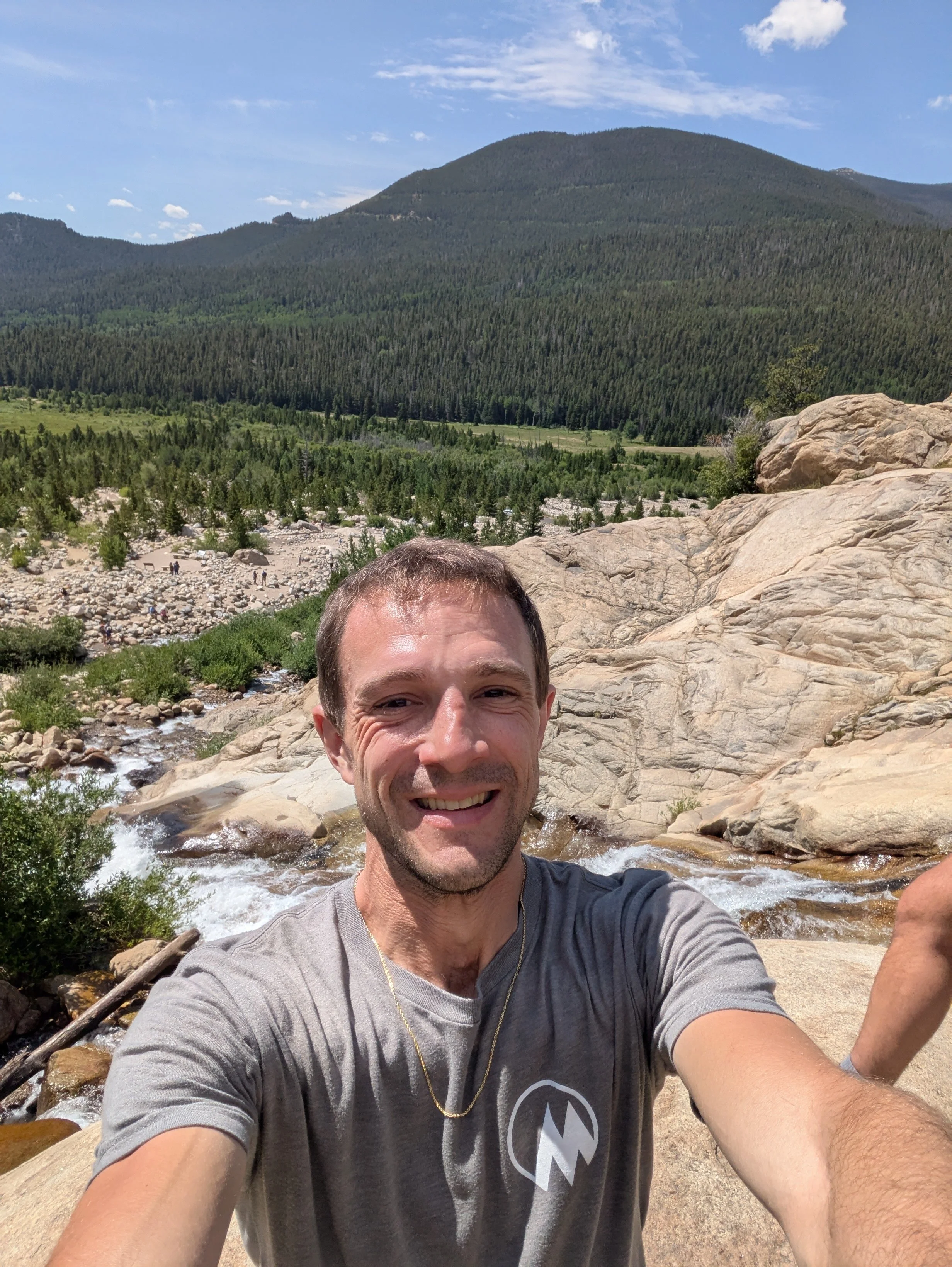
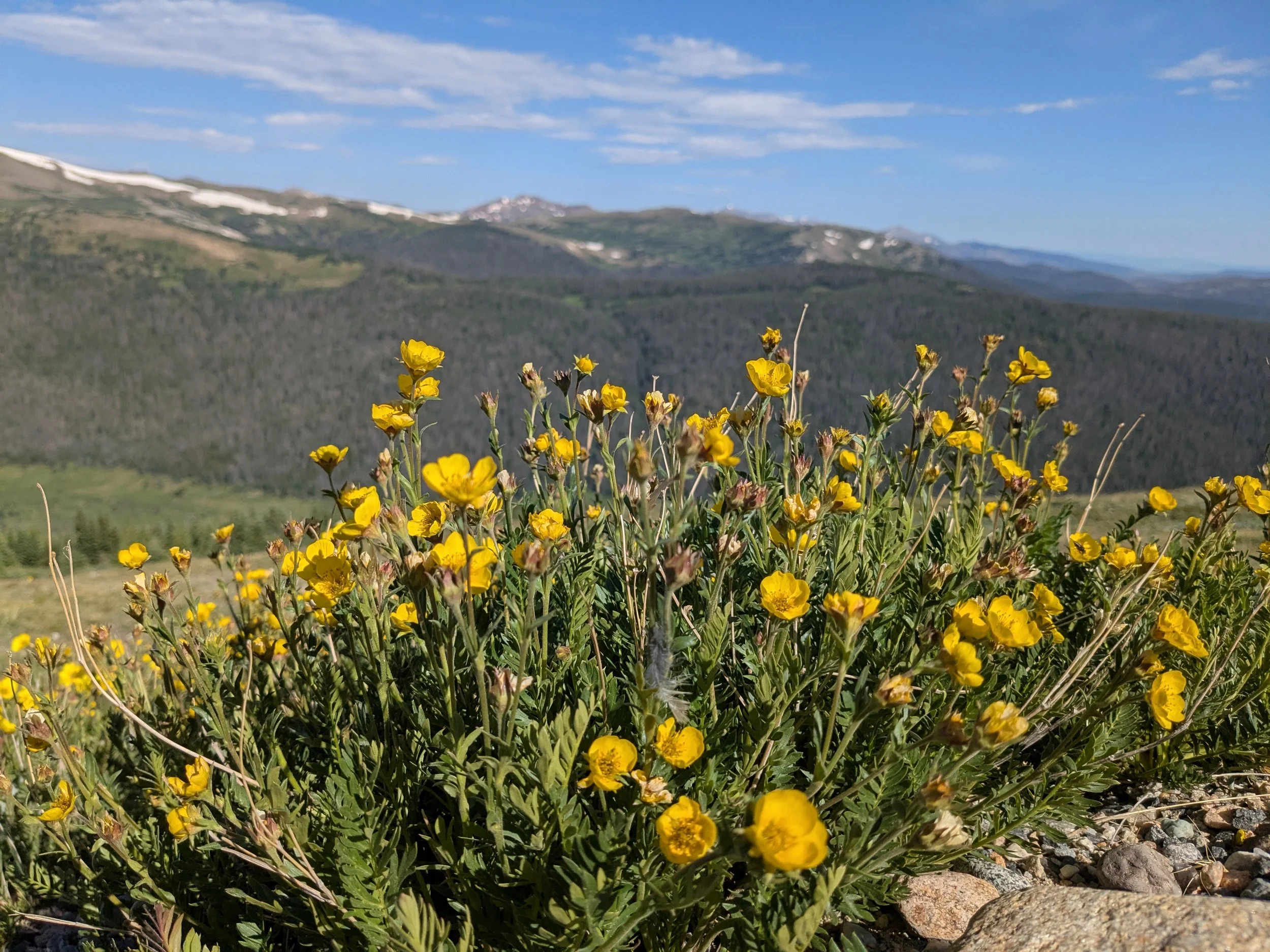
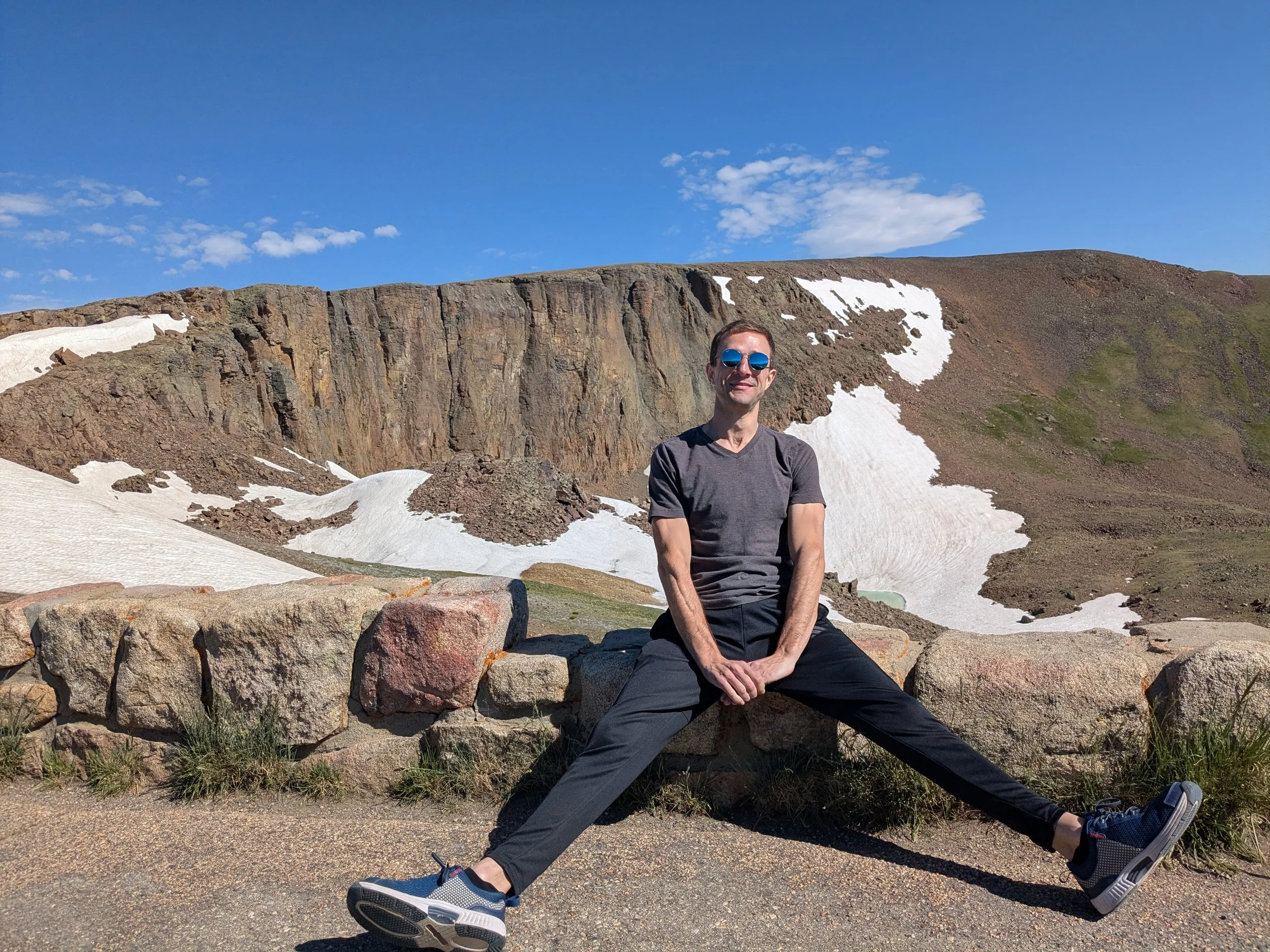
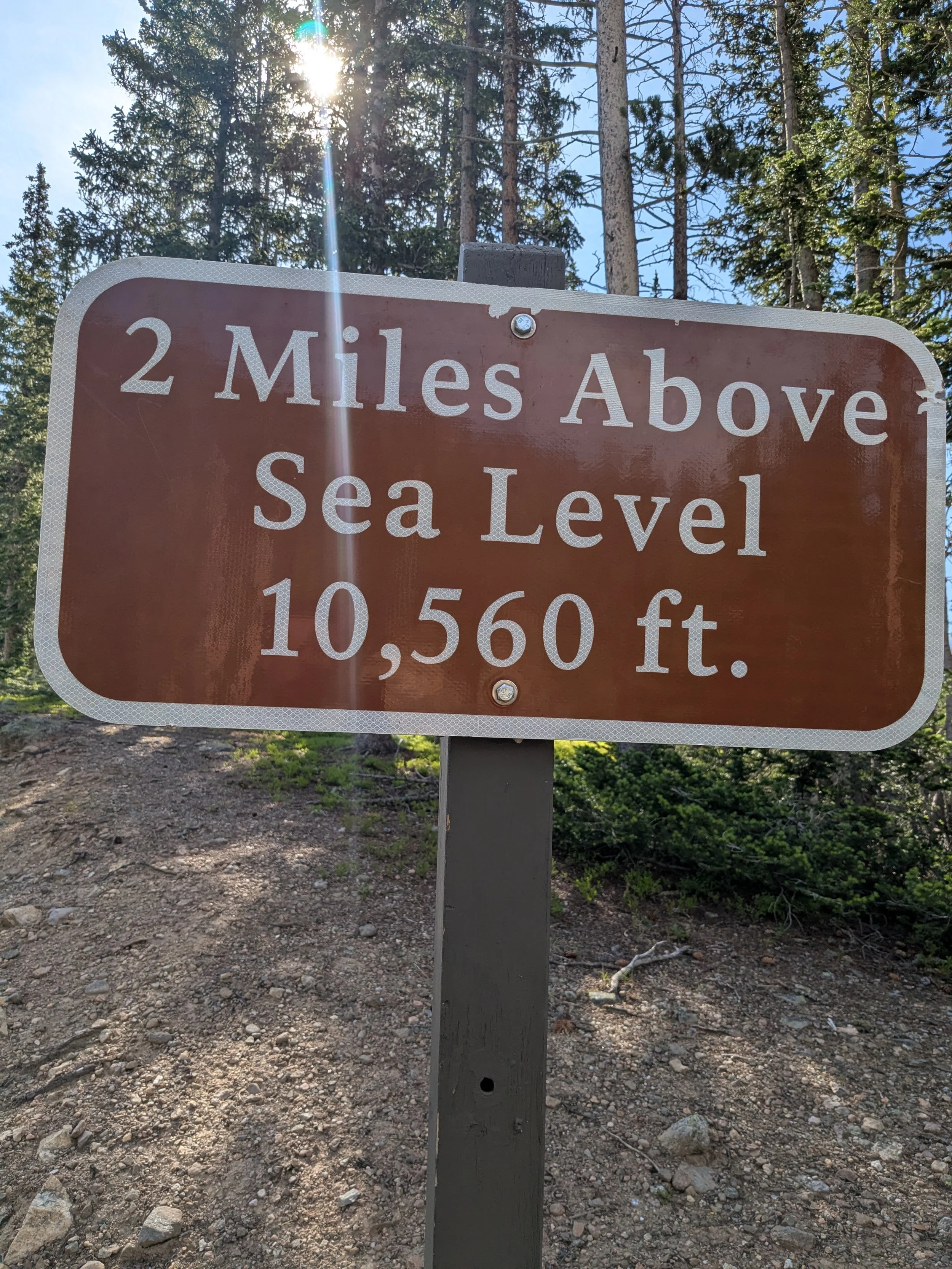
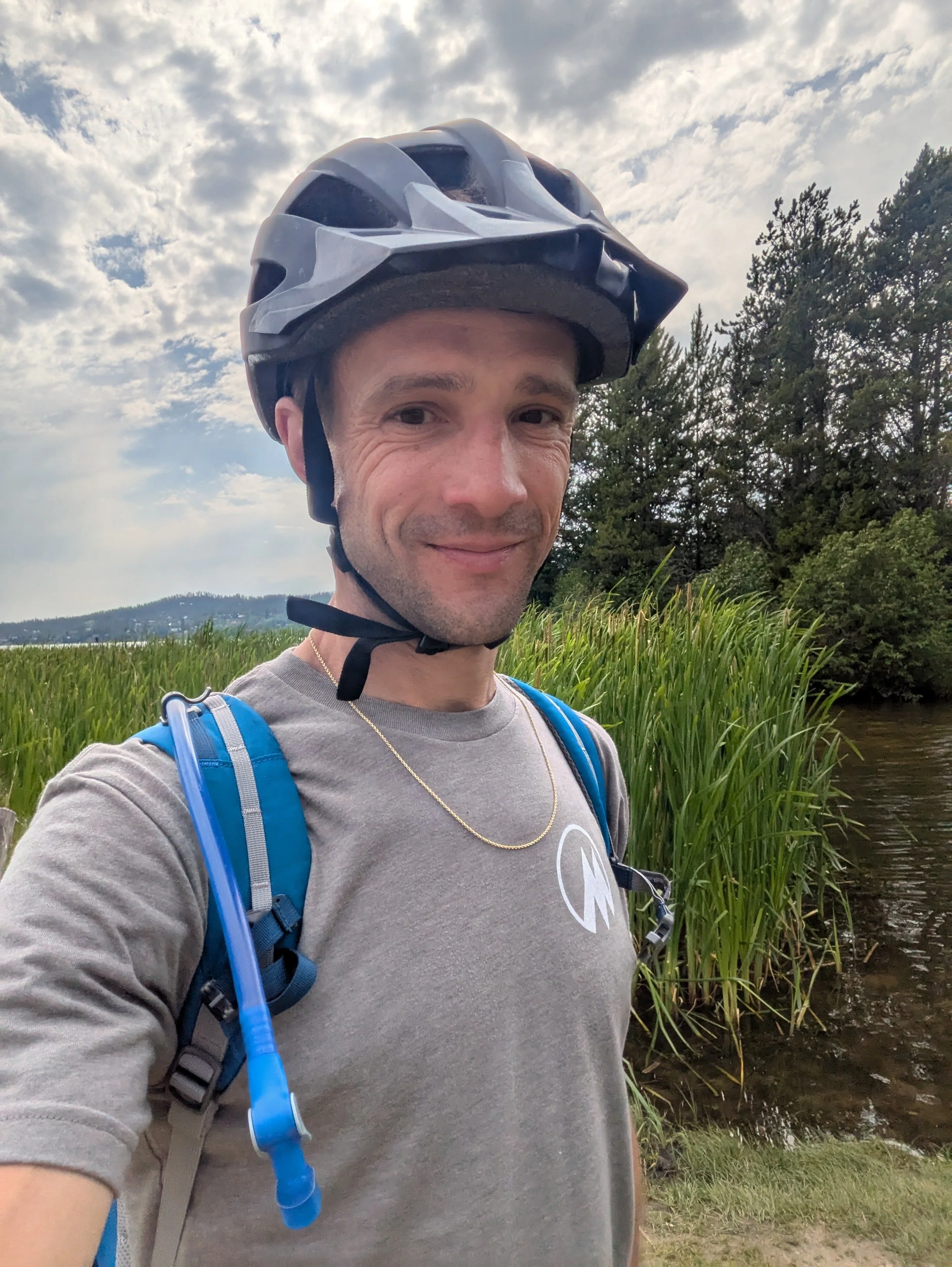
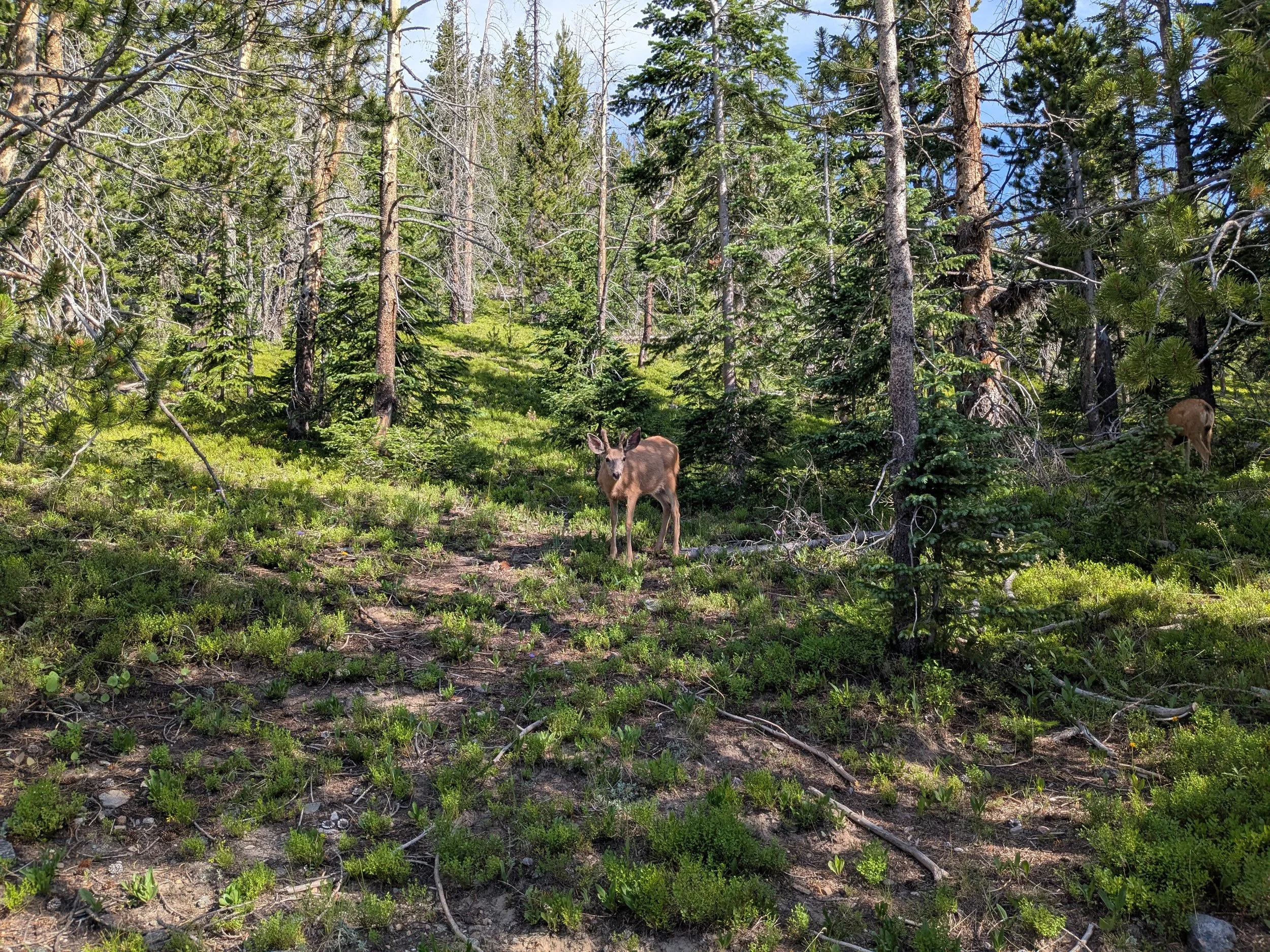
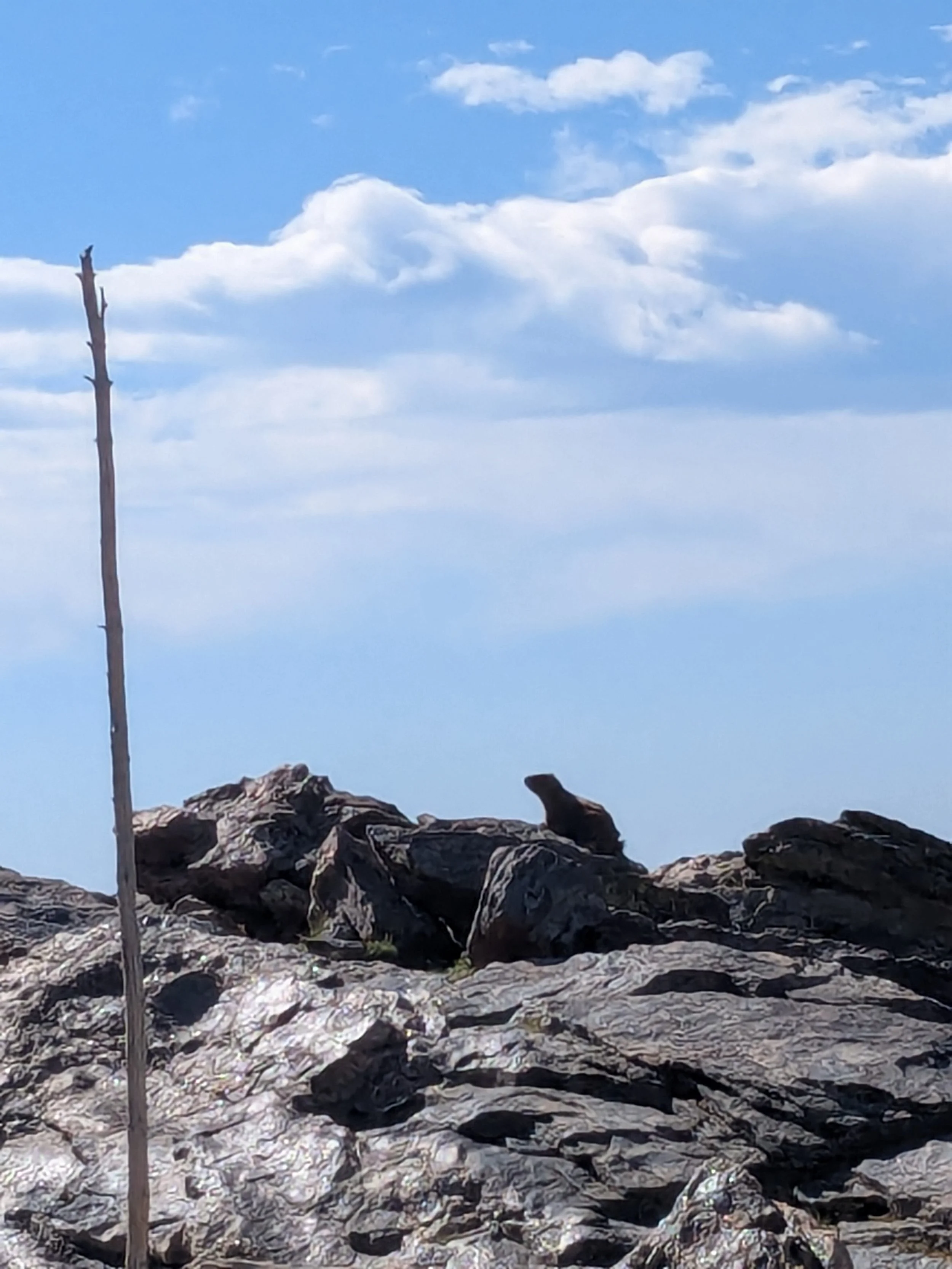
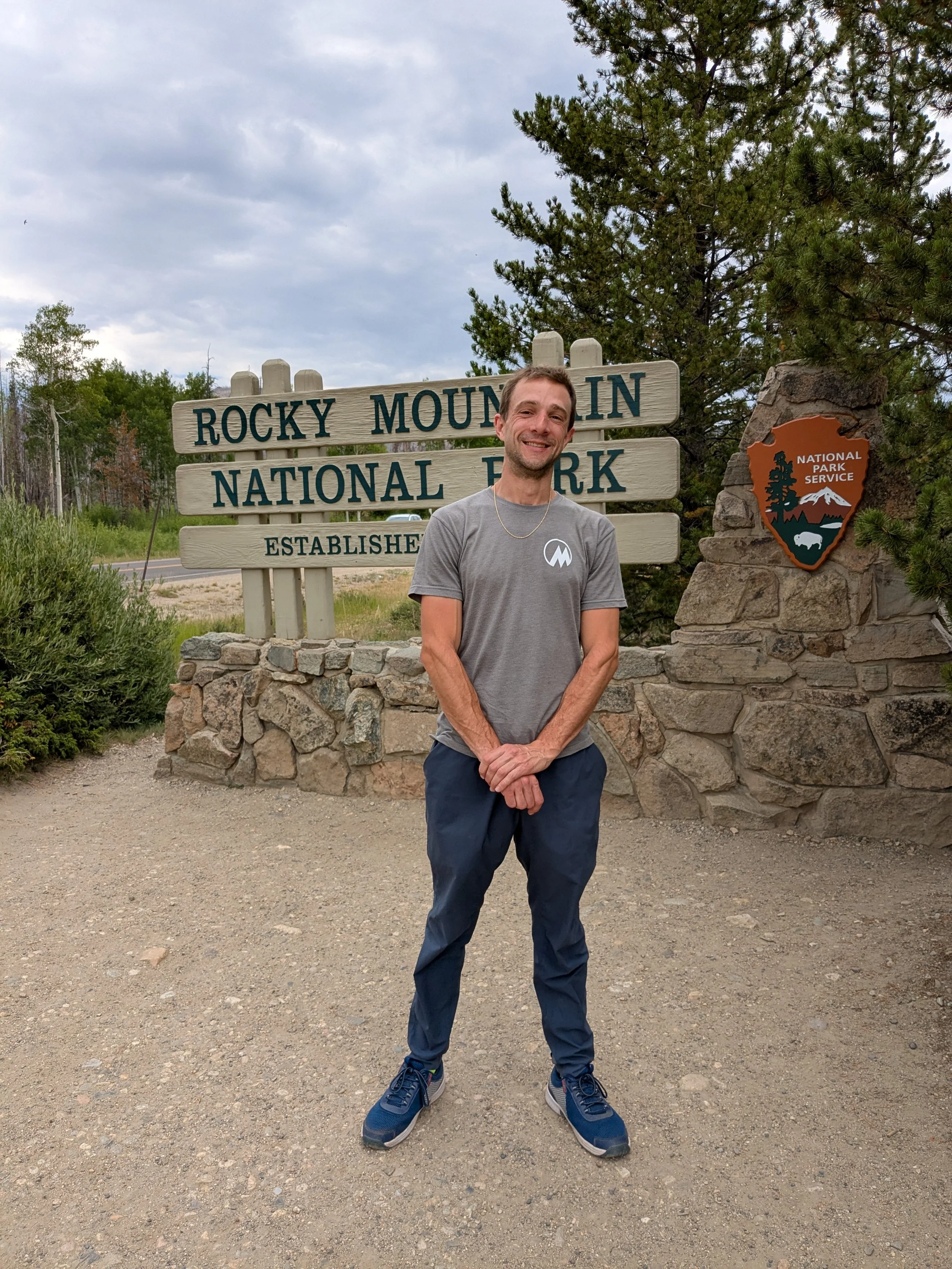
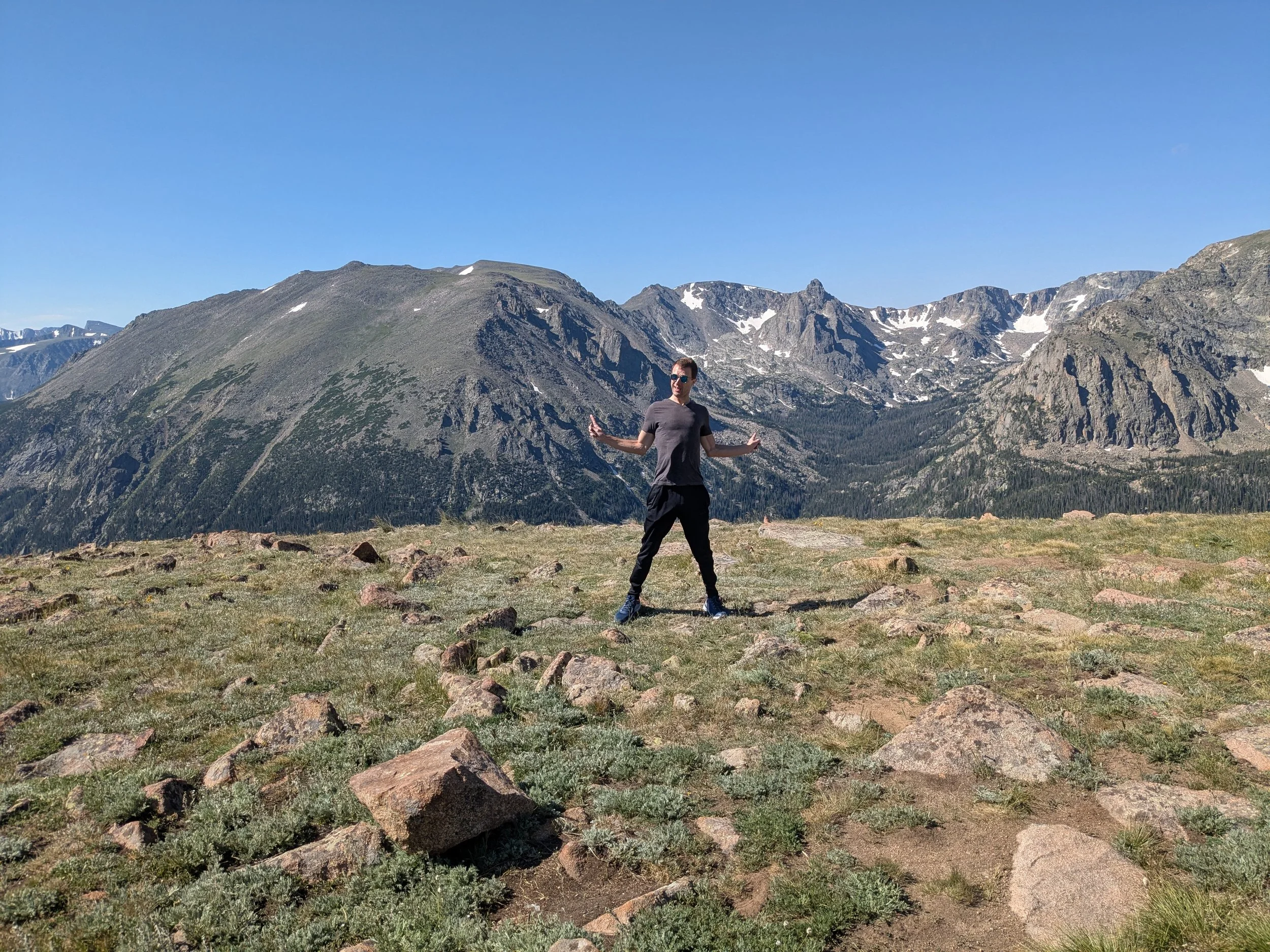
Megan’s Story
Meet Megan! Megan was diagnosed with Cerebral Amyloid Angiopathy - Related Inflammation in February 2024. In her words:
“I don't believe there is any aspect of my life that hasn't been impacted by my diagnosis! Daily tasks, chores/errands, the ability to keep up our home, relationships, and work...they've all had to change. I can no longer work, nor can I be the contributing member of the household that I used to be. It has been a real journey of loss and acceptance, but I am learning to adjust how I contribute, as well as pace myself so that I can still be productive in some sense and also enjoy life."
Meet Megan! Megan was diagnosed with Cerebral Amyloid Angiopathy - Related Inflammation in February 2024. In her words:
“I don't believe there is any aspect of my life that hasn't been impacted by my diagnosis! Daily tasks, chores/errands, the ability to keep up our home, relationships, and work...they've all had to change. I can no longer work, nor can I be the contributing member of the household that I used to be. It has been a real journey of loss and acceptance, but I am learning to adjust how I contribute, as well as pace myself so that I can still be productive in some sense and also enjoy life.
I thankfully came across Outdoor Mindset in one of my endless online research pursuits. This organization is the only place out there that speaks directly to the neurological population in the outdoor space. The people, like me, who love being active in the outdoors are starving for ways to prevent yet another loss in our lives.
For those folks who haven't experienced what being in nature can do for the mind, body, and spirit, Outdoor Mindset has the potential to impact lives in enormous ways. Connection to the outdoors is not just a luxury for people with neurological conditions...it can literally improve the condition itself.”
Thank million times over, thank you for sharing your story, Megan!
Want to share your experiences? You can do so anytime here
Alyssa’s Adventure - OM Scholarships
I’ve been a member of Outdoor Mindset since 2013 when I moved to Colorado to continue rehabilitation from a brain injury. I’ve always appreciated that OM has less of a focus on the problems of neurological challenge and more of a focus on the adventures ahead. Our tag line should read “I have a brain challenge, you have a brain challenge…so what…let’s climb a mountain.” I’ve found a community of people who understand neurological challenge but who refuse to let the challenges define the ability to adventure well. These are my kind of people and I’m so thankful for the community and the Outdoor Mindset!
I’ve been a member of Outdoor Mindset since 2013 when I moved to Colorado to continue rehabilitation from a brain injury. I’ve always appreciated that OM has less of a focus on the problems of neurological challenge and more of a focus on the adventures ahead. Our tag line should read “I have a brain challenge, you have a brain challenge…so what…let’s climb a mountain.” I’ve found a community of people who understand neurological challenge but who refuse to let the challenges define the ability to adventure well. These are my kind of people and I’m so thankful for the community and the Outdoor Mindset!
My neurologist said that if you get a traumatic brain injury, you have a higher likelihood of getting future concussions. Each time the symptoms seem to get a little worse. I’ve had a bunch of concussions since the first TBI. In fact, I fell off of a ladder in September and got a concussion that led to a pretty significant downward spiral. I knew I needed something really fun, an adventure to get excited about, something to help me put one foot in front of the other again. So, I applied for an adventure scholarship and about a week later I found out I had gotten the scholarship and started planning and dreaming and getting excited about the adventure ahead.
I’ve always enjoyed being near water and I’ve wanted to go on a fly fishing adventure for years though I’ve never been on a float trip before and my fly fishing skills were questionable at best. I decided that the scholarship was the perfect opportunity to learn to fly fish on a fully supported fly fishing float trip with my dad. We traveled four hours to Casper Wyoming to connect with our guide (the owner of Wyoming Fly Fishing and the Platte River Fly Shop) for a full day on the river.
Our guide was incredibly patient and taught me the art of fly casting and I caught my first fish within five minutes of starting the trip. I started smiling and didn’t stop the entire day. We then caught 19 fish in 8 hours of fishing. I also caught a couple of rocks, a branch and the guide (several times). He refused to give up on me and showed me over and over how to read the river, and the bugs in the river and how to cast and even when I caught him, he just kindly unhooked himself and told me how to cast away from the boat. He told hilarious stories and pointed out wildlife (deer, ospray, and cows) along the way. He had an uncanny knowledge of the river and knew exactly where the fish hung out. He would bring the raft right over to the fishing hole so that I would drop the fly almost on top of the fish and then he would help me pull the caught fish onto the boat for a name, a picture, and a celebration before we’d release them back to the river to keep swimming.
I couldn’t help but think of the adventure as an allegory of brain injury. Sometimes having an injury makes you feel like a fish out of the water…struggling to move forward, struggling to survive. But, every time we unhooked the fish and it swam off it was a picture of resilience of overcoming a challenge and refusing to give up which is exactly what we have to do to thrive after an injury. This adventure was a life highlight for sure, and one I never want to forget. I’m incredibly thankful for the chance to learn a new skill from our fantastic guide, connect with my dad, smile for 8 hours straight, and catch so many fish!
Being Your Own Superstar
In golf, it’s called a handicap. We all have one. The parents we were born with, Bad things that have happened to us. Poverty. Illness. Bad decisions that weren’t really our fault. Any life condition(s) that make it difficult, if not impossible, to be the best at something. And yet you can still be the best (whether or not that means being better than everyone else).
In golf, it’s called a handicap. We all have one. The parents we were born with, Bad things that have happened to us. Poverty. Illness. Bad decisions that weren’t really our fault. Any life condition(s) that make it difficult, if not impossible, to be the best at something. And yet you can still be the best (whether or not that means being better than everyone else). I think that we see/judge ourselves through the lenses of our friends, people we’re connected to, more so than through the lens of the universe, which is a more objective lens. Only we know exactly what it is like to have whatever handicap or handicaps we have, and what is in the realm of possibility, much less greatness, in light of it/them. The best human in the world could be someone nobody has ever even noticed. He/She may or may not have battled cancer, may or may not be a fantastic athlete, may or may not have a 130 IQ, etc. Just as having had a serious illness or illnesses doesn’t automatically make one a superstar, achieving great monetary success likewise doesn’t automatically make one one.
All of us in OM have a challenge we have dealt with/are dealing with, but the conditions we have are so particular and so varied that it can be difficult to see what really connects us. I think what getting outside (having an outdoor mindset) means for me is learning how to handicap myself, how to adapt my goals to fit my situation, and how to set myself up for success, as defined by my ability to meet those goals. I would say that there is nothing wrong, for instance, with giving up a thing or things, not because they’re too hard or because we can’t do them, but because they may be part of our old path, instead of the one we are now on.
When the dust settled over my life recently, I realized that the essence of everything I’ve ever done is sort of all one thing. I don’t need to play the guitar, shoot an 80 in golf, even walk at a certain pace when I go to the store (all things that a brain tumor compromised), because what I do do, which a lot of times isn’t the thing itself, but how I do it, keeps me moving forward – forward on my new path, which is as fruitful and as interesting as I can make it. I was an athlete, first and foremost, in my younger years. Circumstances forced me to pursue other things, as early as college. In my twenties and thirties, Bipolar Disorder forced me (or helped me, depending on how you look at it) to pursue art (writing, painting, music, and more than anything, as a way of life – eg. Creativity in taking care of myself). The brain tumor I had removed 3 years ago was and wasn’t a big deal for me, because I had learned by then how to take whatever life gives me. So this is what I focus on - challenging myself in a way that feels good, like getting outside, or doing other things I like or love, but also realizing that I am still only maybe halfway along the journey from my surgery 3 years ago to discovering what new activities there are to become passionate about, and new ways of doing them.
Eric Cooney has been an OM member since 2016. He is a writer and visual artist living in Boulder, Colorado.


